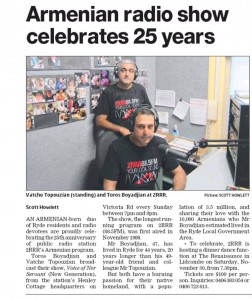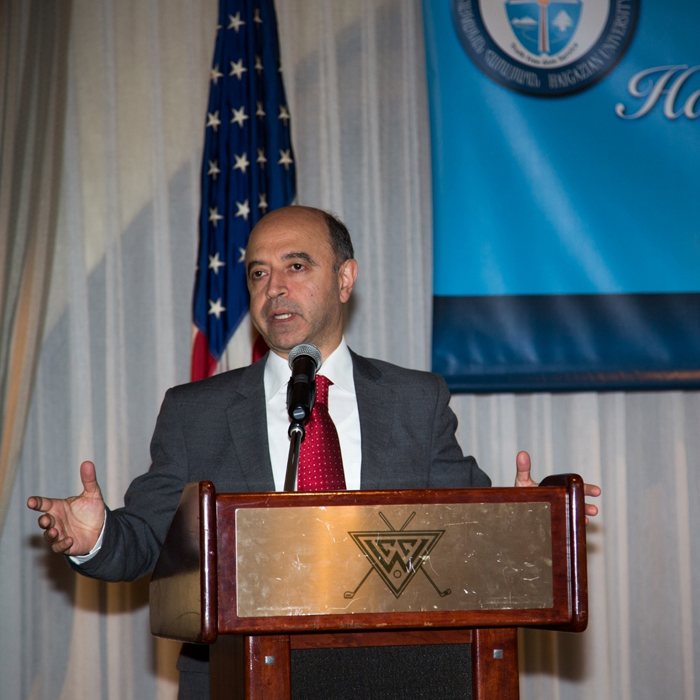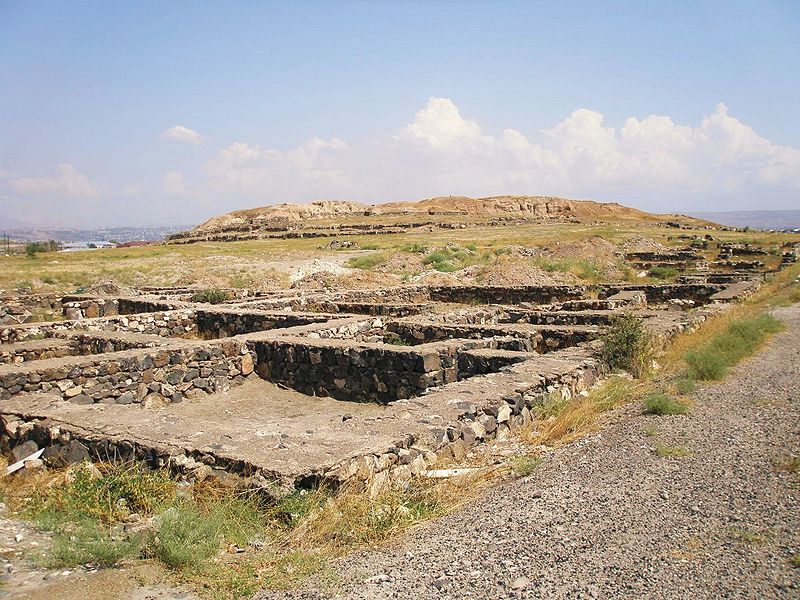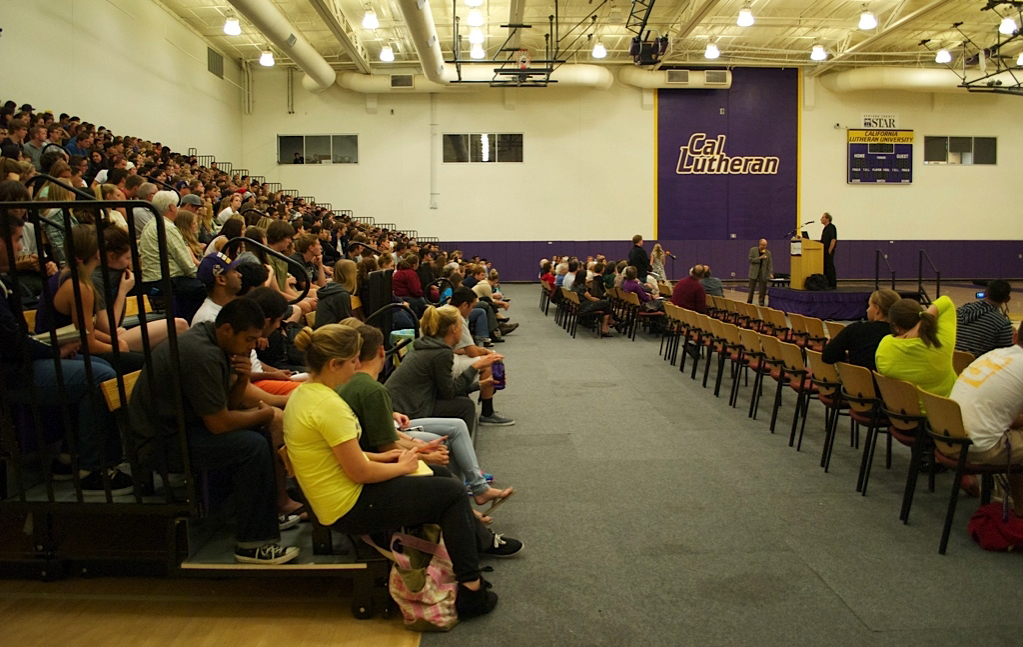Dr. Hayk Demoyan, Director of the Armenian Genocide Museum Institute (AGMI) in Yerevan, was interviewed by Deborah Hay, Program Coordinator of the International Institute for Genocide and Human Rights Studies (A Division of the Zoryan Institute) on Nov. 11, 2013, during his recent trip to Canada.
Dr. Demoyan has produced 13 publications, the most recent of which appeared in Russian, entitled “Turkey’s Foreign Policy and the Karabakh Conflict,†which is based on his doctoral thesis. He is also Secretary of the State Commission on the Commemoration of the 100th Anniversary of the Armenian Genocide
Q1. Dr. Demoyan, welcome to Canada. Is this your first visit to our country? Please tell us about your activities here.
HD – This is my first visit to Canada, and it is very important for me, as Director of the AGMI, to be here for the purpose of signing a Memorandum of Understanding between the Canadian Museum for Human Rights and the Armenian Genocide Museum-Institute of the National Academy of Sciences. In addition, I took the opportunity to also meet with local centennial committees formed for the commemoration of the Armenian Genocide in 2015, as well as Armenian communities at large, to update them on the work being done at the AGMI and plans for centennial commemoration activities.
In this respect, I must say that the Zoryan Institute has already made an important contribution towards the 2015 Centennial by facilitating the relationship between the two museums. It took the initiative using its good offices to bring an official of the CMHR, Dr. Clint Curle, to visit the AGMI earlier this year, to acquaint himself with Armenia’s culture and history, and especially the Armenian Genocide. This was very important because the CMHR will be one of the most significant places in the world to have a permanent exhibition on the Armenian Genocide. During the visit, we confirmed that the AGMI and CMHR have so many interests in common that it made sense for us to establish an official working agreement. The Zoryan Institute has been instrumental as a facilitator and liaison between the two museums and will maintain an ongoing role in that capacity. I am sure this cooperation will facilitate the development of joint projects between the AGMI and the CMHR.
Q2. How far back do your relations with the Zoryan Institute go?
HD – I first encountered the Zoryan Institute when I met its Executive Director, George Shirinian, in Yerevan in 2005. When I was appointed Director of the AGMI, it seemed natural that the two organizations should explore areas of mutual interest and cooperation. Zoryan has always been generous in providing the museum copies of its publications and has participated in our conferences. In 2012, we established an agreement to cooperate in the areas of research, publication, and student exchanges. That year, Zoryan provided scholarships for two student-staff members of the AGMI to travel to Canada and attend its renowned Genocide and Human Rights University Program run at the University of Toronto. This year, another three of our student-staff were sponsored to attend. They all reported that the experience was excellent for them, both academically, and personally. Zoryan staff continues to provide materials, assistance and advice to AGMI’s researchers. In its turn AGMI is very supportive of Zoryan’s researchers with necessary materials and consultation.
Q3. Dr. Demoyan, you have been in charge of the Armenian Genocide Museum Institute for seven years now. Can you give us a brief overview of the developments of the museum during this time, especially in preparation for the Centennial?
HD – During my time at the AGMI, I have especially stressed three aspects: the educational role of the museum, representing the Armenian Genocide in a broader human rights context, and international cooperation with other museums and academic organizations. Parallel to this, a great effort has been made to enrich the museum’s collection with important and interesting documents and items, in order to include them in conceptually new exhibitions we are working on. As the collection grows, and the museum has more and more visitors, the current construction of new blocks for the museum will enable us to double our exhibition and storage spaces. These activities are an important part of the events dedicated to the centenary of the Armenian Genocide. Parallel to this, publishing activities and the development of numerous traveling exhibitions are planned to show in museum halls and other places worldwide. This is not a full list of our activities which, for sure, will continue after 2015 with new energy and vision.
Q4. As the Secretary of the State Commission on the Commemoration of the 100th Anniversary of the Armenian Genocide, you are involved in coordinating activities both in Armenia and the Diaspora. How does your visit to Canada fit into those overall activities?
HD – Among the many duties and responsibilities of Secretary, I try to establish contact with local committees and develop cooperation on a common agenda. My visit to Canada is an excellent example of the positive results that can be achieved when Armenian and Diaspora-based organizations, both academic and otherwise, cooperate.
I’d like to emphasize here that the Centennial Commission’s role is not to tell the local committees what to do or what projects to undertake. Rather, it is to support them, coordinate their efforts, and ensure that all activities are done under the umbrella of the local centennial commemorating committees, represented by all community organizations equally. Effective and cordial cooperation among all community organizations will be crucial for the success of the 2015 commemorations.
I’d like to make clear that my activities as Secretary of the State Commission and those as Director of the AGMI do differ. This is particularly critical in Canada, where a Canadian crown corporation, the Canadian Museum for Human Rights, is involved in promoting human rights and awareness about five recognized genocides, based on strict academic standards. We at the AGMI, being also an academic institution, will contribute to the CMHR’s permanent exhibition from that perspective, providing extensive materials and information about the Armenian Genocide.
The AGMI has been dealing with broad range of topics and activities on the Armenian Genocide for over 18 years, both conducting scientific research and representing its many aspects in educational displays. Together, the AGMI and the CMHR will work on developing new projects, among them new permanent exhibitions, as a new effort to preserve national memory and to raise awareness of the importance of human rights and genocide prevention. For this reason, I consider my visit to Canada as one of the high points of the AGMI’s activities for 2013.
Q5. You have visited Armenian communities around the world. Do you observe anything different about Canada?
HD – One of the significant differences in Canada is that the government here had the moral fortitude to officially recognize the Armenian Genocide, despite political pressure to deny it.
Canada is one of the world’s greatest proponents of multiculturalism, whereby each of the many ethnic groups in this country can preserve their particular heritage and lifestyle while still being good Canadians. Canada enables and encourages all ethnic groups to share their own history, memory, and values with one another. Canada has a significant Armenian community, with churches, political, cultural and social organizations. You have here an established, international, academic institute dealing with issues relating to the Armenian Genocide, Diaspora, and Armenia for the past thirty years. My research shows that despite many challenges of assimilation, the Armenian community here is a strong, contributing component of the Canadian mosaic.
We were very pleased to see CMHR officials from Canada visit Armenia in order to strengthen their understanding of the Armenian Genocide. During the visit, we found we had a meeting of minds in our goal of combating the violation of human rights, and we have now made official the cooperation between our two museums. I am sure the exhibits in the CMHR will help Canadians learn more about the Armenian Genocide and understand why their government officially recognizes it.
Q6. What is the objective of the Memorandum of Understanding between the two museums?
HD – The agreement will trigger the exchange of ideas, experiences, information and materials, exhibitions, sharing of research and advice, cooperation to advance the academic study of human rights, the Armenian Genocide and its effects, and processes seeking justice and reconciliation. It can serve as a model for other museums around the world for how to approach the Armenian Genocide through the lens of universal human rights.
Because of the enormity of the subject, I am sure that synergies with the CMHR will benefit us in Armenia in conceptualizing new approaches and new permanent and travelling exhibits, particularly the emphasis on human rights. At the same time, we hope to be helpful to the CMHR in developing the Armenian section of their exhibits, where the Zoryan institute will also be involved in an ongoing role as liaison and facilitator.
This agreement can be seen as a new starting point for education of the Armenian Genocide and for fighting against denial of the Genocide in world history. I hope it may also serve as the starting point for the establishment of a network of museums that deal with genocide and human rights. This is especially critical for 2014, a year when many countries will commemorate the centennial of the WWI, under cover of which Ottoman Turkey committed the Armenian Genocide.
Q7. Is there anything you would like to add in closing?
HD – Yes. My wish is that I come back to Canada as soon as possible to realize joint initiatives and programs, both in the academic field and also regarding community activities related to the centennial. I have no doubt our joint efforts will produce successful results in pursuit of our mission.
Hayk Demoyan Discusses Developments at the Armenian Genocide Museum Institute



